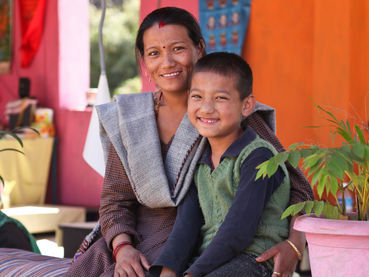
Diese Seite ist auf Deutsch nicht verfügbar. - lesen auf Englisch:
Last week I facilitated a workshop with operational managers on personal leadership. At the start, I asked everyone about their favourite hero and shared with them that Whoopi Goldberg is mine. Not because of her acting but because of her personality. Down to earth, optimistic, intellectual and she doesn’t take herself too seriously.
From the fifteen people in the room, two of them mentioned Bruce Lee and Gandhi, but everyone else named their own father or mother as their personal hero.
Parents as everyday heroes
The managers’ voices and facial expressions changed when they talked about their parents;
‘My father, who is not here anymore, taught me so much about life. For example about how much you can learn from observing others. I still use his lessons everyday.’
People shared different things about their parents, but their stories all had one thing in common: each of these fathers and mothers faced many difficulties in life, struggled, but overcame them. For me that is a key issue. To me it is the one thing that distinguishes the real heroes from the ‘one day flies’. It is not their talents or abilities, rather it is their personal leadership and perseverance.
The fathers and mothers who were mentioned as personal heroes by these managers are not even striving to win the award for ‘best father or mother in the world’, they simply do what they need to do to survive - and they have an unconditional love and commitment to their children. One participant said:
‘My father worked in the military, we didn’t have much money. My mother took care of all four children by herself, we saved every roepie. We never went to friends to drink cay because then we also had to take care for cay and sweets when people came over at our place.’
His other hero is his colleague, who was sitting next to him. Now an accountant assistant but he started off in the company just like him: an office boy. And worked his way up.
Parents in India
When I later reflected on this session with the manager, she explained to me:
‘In India the parents are more heroic than any other person. You see them every day and they do a lot of sacrificing for you. They do everything to give their childeren a better future than they had. My dad never studied, but he always stimulated me and my three sisters to learn as much as possible.’
I realized again what a survival society India is. Of course, there is a reason why India is one of the fastest growing economic powers today, but that doesn’t mean that this is the reality for everyone in India.
The reason why the company asked me to work with these managers on personal leadership, is that they wish to see a greater motivation and commitment. After hearing their personal life stories, and seeing the determination that they have to make something of their lives, I am sure that it is already there. How to show it, that is maybe more of the issue. People are not always aware of the levels of commitment in the day-to-day work situation. Interesting question is how to overcome that. And how to make it more visible across hierarchical lines within the company, in a society where sharing such personal stories, or expressing your commitment very explicitly is not common practice.